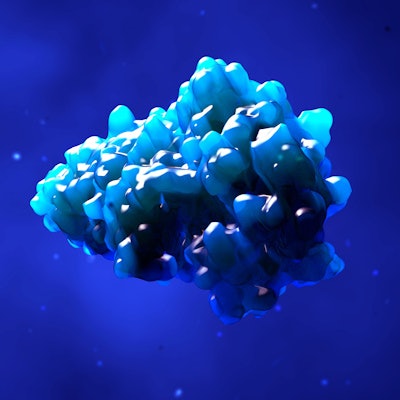
The presence of a group of inflammatory proteins could signify that patients with diabetic kidney disease may be at risk of progressing to end-stage renal disease, according to a study published April 22 in Nature Medicine.
Researchers found that a group of 17 circulating inflammatory proteins were consistently associated with a patient's progression to end-stage renal disease. They believe that the protein group, called the kidney risk inflammatory signature (KRIS), could alert physicians to the chance that a diabetic patient's disease is at risk of progressing.
The researchers from the Joslin Diabetes Center in Boston monitored 363 patients with type 1 and type 2 diabetes with kidney disease for seven to 15 years. For comparison across a different patient population, they also tracked 162 Pima Indians with type 2 diabetes who were followed over 10 to 15 years.
The investigators used an aptamer-based proteomics assay (SomaScan, SomaLogic) to analyze nearly 200 circulating inflammatory proteins. They found that the same 17 proteins were influential in the progression of diabetic kidney disease to end-stage renal disease in all of the cohorts they studied. Patients with higher levels of KRIS proteins were more likely to experience disease progression, according to the group led by senior author Dr. Andrzej Krolewski, PhD, head of the section on genetics and epidemiology at Joslin.
Some of the proteins in the KRIS group include members of the tumor necrosis factor (TNF) receptor family. Previous studies by the researchers hinted at the role of two TNF receptor proteins in kidney disease inflammation; the new study identified enrichment for the entire family of these proteins.
Interestingly, the researchers found that the KRIS proteins did not originate in the kidney; this could be a sign that there are other biologic processes involved in the progression to end-stage renal disease that involve systemic inflammation.
Krolewski and colleagues plan to perform follow-up studies to better understand each KRIS protein's role in the inflammatory process. The individual KRIS proteins could then be targeted for therapies by drug developers.















